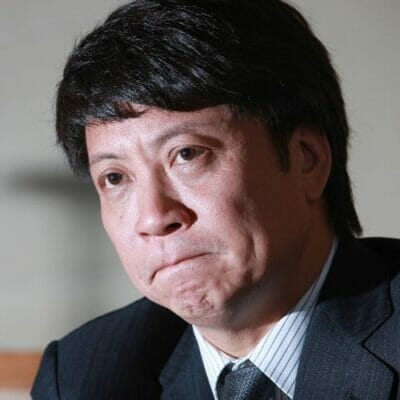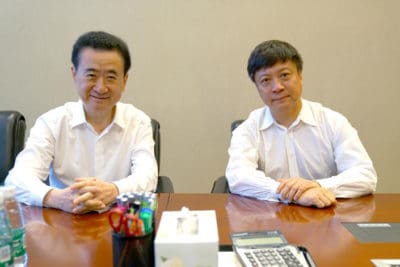
Sun Hongbin’s Sunac China is the latest aggressive deal-maker to attract the wrong kind of attention
Sunac China has become the latest deal-hungry conglomerate to draw scrutiny from China’s regulators, with domestic banks reviewing the Tianjin-based developer’s credit risk following its decision to buy $9.3 billion worth of property assets from Dalian Wanda Group.
The China Banking Regulatory Commission (CBRC) verbally instructed commercial banks to review their credit exposure to Sunac, domestic news portal Jiemian reported, according to an account in the South China Morning Post. After receiving the order, China Construction Bank froze the sale of a Sunac financial product and cancelled a RMB 1.5 billion ($222.1 million) trust loan to the firm.
The move against Sunac is said to be part of a move by China’s banking regulator to curb lending to some of the biggest players in the country’s domestic M&A wave. During the last month the CBRC and other agencies had already cracked down on credit flows to Fosun, HNA Group and Wanda, and the news comes on the heels of Monday’s reports of a funding clampdown on Wanda’s overseas entertainment projects last month.
Burgeoning Debt Puts Sunac in Regulatory Spotlight
News of the crackdown on Sunac sent shares in the acquisitive property developer tumbling by as much as 13.5 percent on the Hong Kong exchange on Tuesday, wiping out $1.1 billion in equity value in the biggest intraday drop in two years. Chairman Sun Hongbin downplayed the scrutiny, saying “this is a normal practice by banks” given his company’s massive investment in a horde of Wanda assets.
Under the terms of that deal, announced last week, Sunac will acquire a 91 percent stake in Wanda’s portfolio of 13 theme park projects, along with 76 hotels, for RMB 63.18 billion ($9.3 billion), marking what appears to be the country’s bigger ever property transaction. Wanda will lend Sunac $4.35 billion to facilitate the sale.

Wanda’s Wang and Sunac’s Sun teamed up on China’s biggest ever property deal last week
The landmark deal with Wang Jianlin’s commercial property giant is the latest in a string of acquisitions that has seen Sunac gobble up RMB 124 billion ($18.4 billion) worth of companies and projects since last September alone.
Sunac’s buying binge kicked off in late 2015 and has transformed the company from a mid-sized homebuilder into China’s seventh-largest developer last year. Among its other transactions, Sunac has injected $2.4 billion of capital into Jia Yueting’s flailing tech firm LeEco. Sun was elected to the board of directors of listed unit Leshi on Monday.
The company’s acquisition streak has doubled its total assets and boosted its debt levels to around three times its equity value. Fitch Ratings and S&P have both downgraded Sunac following the Wanda purchase owing to the group’s rapidly mounting debt.
Spotlight Turns to a Domestic Debtor
The CBRC order to review Sunac’s credit risk is said to be similar to the instructions given by banking regulators on June 20 to cut off funding to Wanda for six overseas entertainment deals, although Sunac has not been a major overseas investor to date.
In Wanda’s case, its 2012 purchase of US theater chain AMC Entertainment Holdings and its 2016 buyout of film producer Legendary Entertainmen were among six of the company’s overseas deals said to have violated strict capital controls rolled out last November.
Even before this latest move against Wanda, the CBRC told some of the country’s biggest banks to examine lending to a group of four mainland companies that included Wang Jianlin’s property-based conglomerate as well as investment behemoths HNA Group and Fosun International.
Unlike Sunac, Wanda, HNA and Fosun are all aggressive overseas deal-makers, and the heightened scrutiny appeared to be aimed at curbing capital outflows from China ahead of a major leadership reshuffle this autumn. Now the new regulatory action that has targetted Sunac appears intended to rein in the highly leveraged companies to reduce risks in China’s financial system.
President Xi Jinping last weekend said a new Financial Stability and Development Committee would be created under the State Council to guide the CBRC in tightening financial risk control. The CBRC followed up by stating it would strengthen oversight of risky behavior and work to reduce “chaos” in the market.
Leave a Reply